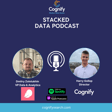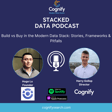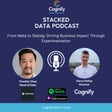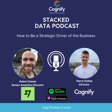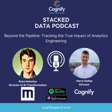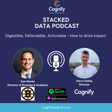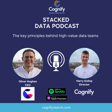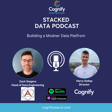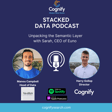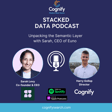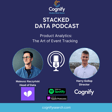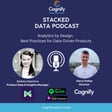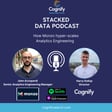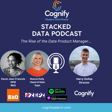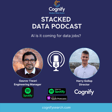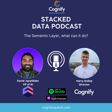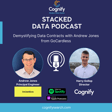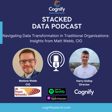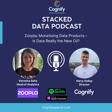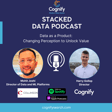
022 - The Data Ecosystem: Where do you even start?
The data industry is evolving at an exponential rate; what is possible today was a dream just 10 years ago. As data teams become more complex and roles increasingly specialised, the risk of losing a holistic view of the systems and elements that make up a successful data team grows.
This week, I’m joined by data strategist Dylan Anderson from Rekite to discuss the importance of understanding the entire data ecosystem, not just your own "fragment."
Data professionals are becoming more specialised in their respective areas, adopting an inch-wide, mile-deep approach as data roles demand ever-increasing expertise. While specialisation is necessary, are we overlooking the benefits of a broader perspective?
Dylan puts it well: "It’s like appreciating a single piece of a puzzle without acknowledging the entire picture."
In This Episode, We Discuss:
- How to Navigate the Data Ecosystem: Gain insights into understanding the interconnected elements of data roles.
- Avoiding Siloes in Teams and Skill Sets: Learn why it's crucial not to isolate your team or your personal skill set.
- Consequences of Poor Communication: Discover the impact of inadequate communication within data teams.
- The Importance of a Broad Understanding: Understand why having a wide-ranging knowledge of the data ecosystem is beneficial.
Dylan is a globally recognised data strategist who regularly shares his insights, thoughts, and lessons on LinkedIn and through his new newsletter. As a long-time follower of Dylan and his content, it was a privilege to have him on the podcast.
If you don’t already follow Dylan or subscribe to his newsletter, I highly recommend doing so!
Dylan newsletter: Issue #2 - The Data Ecosystem: Where do you even start? (substack.com)
